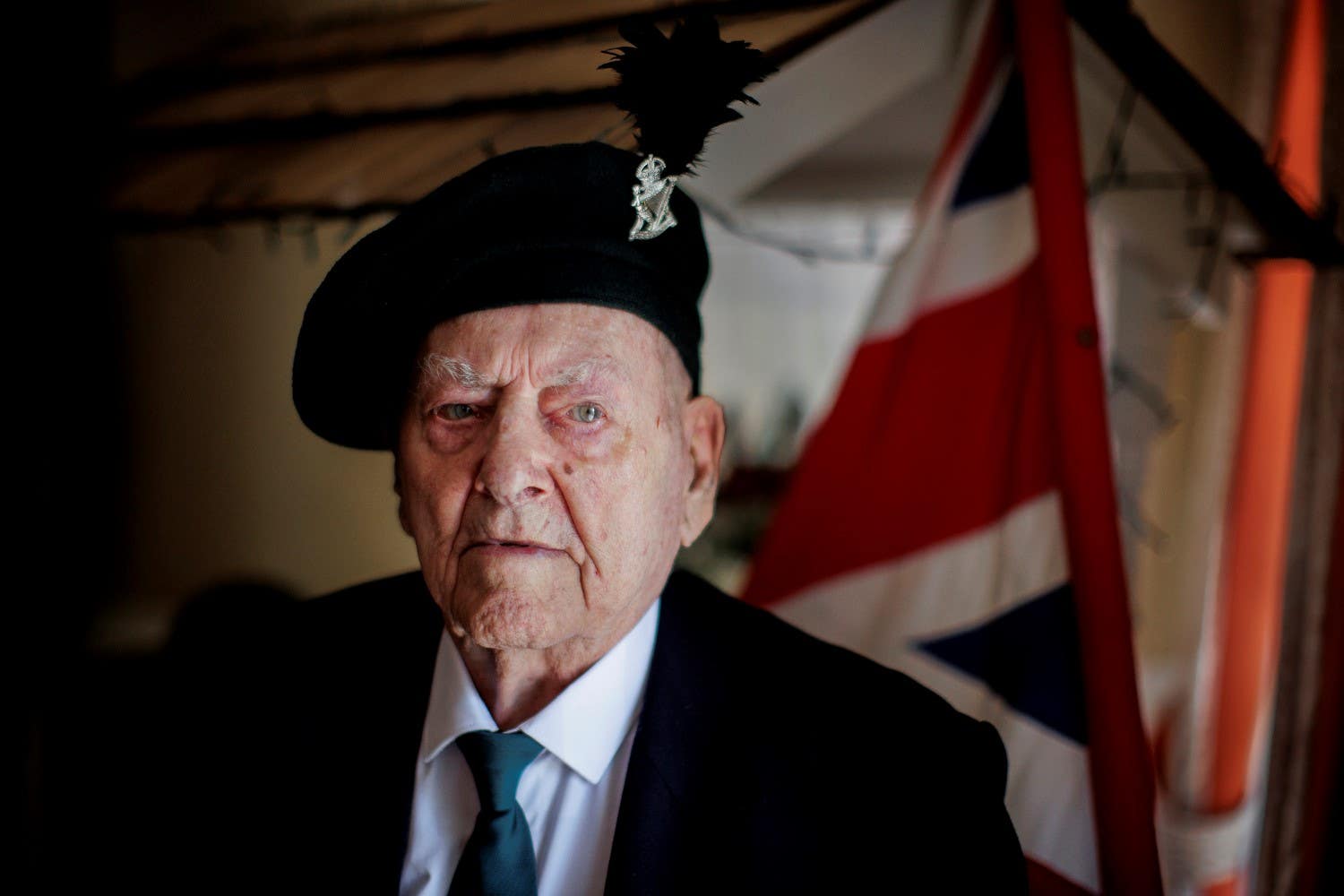Northern Ireland veteran recalls ‘slaughter house’ at D-Day landings
George Horner, 97, from Carrickfergus, Co Antrim, landed on Sword Beach in Normandy on June 6 1944.

Your support helps us to tell the story
From reproductive rights to climate change to Big Tech, The Independent is on the ground when the story is developing. Whether it's investigating the financials of Elon Musk's pro-Trump PAC or producing our latest documentary, 'The A Word', which shines a light on the American women fighting for reproductive rights, we know how important it is to parse out the facts from the messaging.
At such a critical moment in US history, we need reporters on the ground. Your donation allows us to keep sending journalists to speak to both sides of the story.
The Independent is trusted by Americans across the entire political spectrum. And unlike many other quality news outlets, we choose not to lock Americans out of our reporting and analysis with paywalls. We believe quality journalism should be available to everyone, paid for by those who can afford it.
Your support makes all the difference.One of the last surviving Second World War veterans in Northern Ireland has recalled Sword Beach during the D-Day landings as a “slaughter house”.
The beach was one of five landing points in Normandy where thousands of US, British and French troops arrived on June 6 80 years ago to turn the fortunes of the allies around.
George Horner, 97 from Carrickfergus, was a member of G company of the Royal Ulster Rifles.
He was following in the footsteps of his father who fought in the First World War when he signed up to serve.
Of his six brothers, two also served with the RAF and one with the Royal Navy.
While following a strong family tradition, Mr Horner also admitted it was an opportunity to have a hot meal every day, at a time he said money was scarce.
“My father had served in the 36th Ulster Division during World War One when I was growing up, I heard my father talk about his service and he constantly said he kept his head down, I always remembered that,” he said.
“I had six brothers, out of all of us, four served in the forces during World War Two, two in the RAF, one in the Navy, and myself, a foot soldier.”
On signing up, Mr Horner said: “I think I wanted a change from what I was doing and also there was the opportunity to have a hot meal everyday because money was scarce in those days.”
Upon joining the Royal Ulster Rifles, Mr Horner completed training in Omagh, Co Tyrone where he learned morse code, and was also sent to Catterick in Yorkshire for further training in signals.
Memories of June 6 1944 are sad and emotional for Mr Horner who recalled the scene on Sword Beach as a “slaughter house”, with “some good lads lost there”.
“We went in by sea, it was rough too getting on the shore, there was plenty of landing craft, some of them were sinking around us due to shells from shore coming down on us,” he said.
“I had a bazooka, used it to hit tanks or blow-up buildings.
“It takes two to carry the bazooka.
“I would carry a few shells, the other boy would have carried the bazooka.
“I carried the radio too. We were always told to aim for the tracks, when they were hit, unless they put up a white flag to surrender, you just rained it down on them.”
Towards the end of the war, Mr Horner moved into Germany.
He said: “Getting into Germany was tough going, I remember one time, myself and three other guys were in this village square, we were pinned down with heavy fire coming from the corner shop, I called for tank support, the tank duly fired upon the corner shop and with that the firing from the shop ceased.
“Upon approaching the ruined building, I got an awful shock.
“The ones doing the shooting from the corner shop were just kids, all I could say was ‘My God, they are just children’ – towards the end of the war, the Nazis were throwing up kids to fight, anybody at all in fact, that they could get to walk in a uniform, they gave a gun to.
“These Hitler Youth actually proved to be fanatical fighters defending their homeland.”
Mr Horner’s war ended just outside Berlin.
“We could have been in Berlin first, but they held us back for political reason, they wanted to let the Russians go in first, the Russians were a rough crowd,” he added.
Mr Horner also remembers marching, along with the rest of the Royal Ulster Rifles, past then prime minister Winston Churchill during the victory parade in London.
Mr Horner said he came home to Northern Ireland with an injury but it was due to a friend.
“I got shot in the foot by one of my mates, I was raging,” he said.
“He was a loose cannon, a headcase.
“He was holding his rifle and he hadn’t the safety catch on and the bullet hit my foot, I won’t tell you what language I used at the time.
“We did remain good friends though.”
Mr Horner’s service was recognised by his local council with a poppy silver trophy.